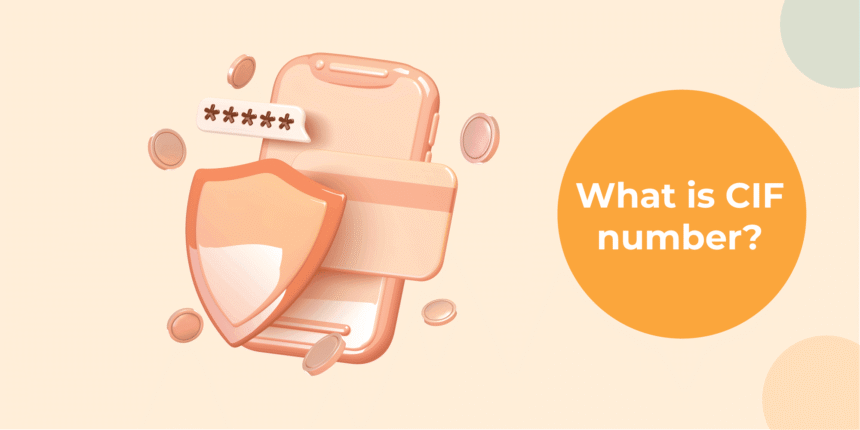In the realm of banking, understanding key terms can empower you to manage your finances more effectively. One such essential term that often puzzles bank customers is “CIF number.” If you have recently opened a bank account or are navigating your digital banking interface, you might have come across this acronym but wonder about its significance. This article will give you a thorough explanation of what a CIF number is, its meaning, importance, how to find it, and what it stands for, with a special focus on the State Bank of India (SBI).
What Does CIF Stand for in Banking?
CIF stands for Customer Information File. It represents a unique identifier assigned by banks to each customer when they open an account. The CIF number is typically an 11-digit numeric or alphanumeric code that acts as a key to a consolidated file containing your banking profile.
This consolidated file includes all your account details, loan information, transaction history, and KYC (Know Your Customer) credentials. Banks use the CIF system to organize data efficiently, improving customer service and security by maintaining an integrated record of your financial interactions.
What is the Meaning and Importance of CIF Number?
The CIF number is not merely a random identifier. It is of paramount importance because:
-
Unique Customer Identity: Each customer receives a unique CIF number, ensuring your financial activities are accurately tracked without confusion with others.
-
Centralized Data Management: Your CIF number links all your accounts, credit cards, loans, and other banking services into one profile, simplifying banking operations.
-
Faster Processing: It enables banks to access all your data instantly, making loan approvals, service requests, and issue resolution quicker.
-
Fraud Prevention and Compliance: CIF helps banks in fraud detection, monitoring suspicious activities across multiple accounts tied to one identity, and ensuring regulatory compliance.
-
Convenience in Service: Customer support and banking helpdesks use your CIF to retrieve your profile quickly and provide personalized assistance.
How Does a CIF Number Work in State Bank of India?
State Bank of India (SBI), Asias largest bank, extensively uses the CIF number system. Upon opening your account with SBI, you are provided with a unique CIF number. This number links all your financial products with SBI, whether savings, fixed deposits, loans, or credit cards.
The CIF number assists SBI staff and automated systems in delivering unified service; for example, accessing your loan history and processing requests becomes seamless. Moreover, it is essential for customers when updating KYC details or applying for new products.
How to Find Your CIF Number?
Finding your CIF number is straightforward and can be done through both online and offline methods.
Offline Methods
-
Passbook or Cheque Book: Your CIF number is generally printed on the first page of your bank passbook or the inside cover of your cheque book.
-
Bank Branch: Visit your SBI or respective bank branch with valid identification, and the bank officials will provide this information.
-
Bank Statement: Some account statements include the CIF number in the account details section.
Online Methods
-
Net Banking: Log in to your banks internet banking portal and check under Account Details or Profile Information.
-
Mobile Banking Apps: Apps like SBI YONO show your CIF number under account information or profile settings.
-
Customer Support: Using secure phone support, after identity verification, you can request your CIF number.
Differences Between CIF Number and Account Number
Often, people confuse their CIF number with their bank account number. Its important to differentiate the two:
| Aspect | CIF Number | Account Number |
|---|---|---|
| Purpose | Unique identifier for customer profile | Unique identifier for a specific bank account |
| Usage | Links all accounts/products of one customer | Used for transactions in a particular account |
| Length | Typically 11 digits | Varies by bank and account type |
| Changes | Remains constant for lifetime of customer | Different for each account held |
Understanding this difference helps avoid confusion during banking transactions and communications.
Why Is CIF Critical for Your Banking Experience?
By consolidating all your banking data, the CIF system enhances your banking relationship by making it easier to manage multiple products, speeding up your requests, and improving the overall security of your financial data.
With the rise of digital banking, CIF also supports seamless integration across platformsmobile apps, ATMs, branches, and call centersoffering you a smoother and more secure banking experience.
Read More: What Does CIF Stand For Banking and How Does It Affect Your Account?
Conclusion
To summarize, the CIF number, standing for Customer Information File, is a unique and vital banking identifier that links all your financial accounts and services under one comprehensive profile. It plays a significant role in providing you with efficient, secure, and personalized banking services.
For a more detailed and authoritative understanding of CIF and its role in banking, refer to Investopedias specialized article on Customer Information Files in banking.









